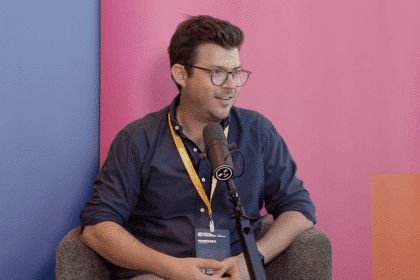You may not believe it from my youthful headshot, but I’m 29 years old and at that weird junction in life when you start to realise that you’re not that young anymore.
The signs are there: at a party on Saturday a Gen Z described my taste in music (S Club 7 and Sophie Ellis Bexter) as old, parents on public transport now describe me as a ‘woman’ rather than a ‘girl’ when their kid accidentally bumps into me, and I’m starting to get adverts on Facebook about freezing my eggs.
One of the areas where it is clear that my experience of life is vastly different from those younger than me is when it comes to media consumption.
Back in the day, TV, and linear TV at that, was very firmly king. My brothers and I would rush in from school, rush to the TV, and usually have a fistfight about who would control the remote.
We would then sit there absolutely transfixed for the next five hours with our attention only broken by dinner.
I share this not to shame my parents for their screen-heavy parenting, but to show that it is very fair to say that TV was the ruler of in-house entertainment (playing with Paint on a massive computer wasn’t that fun).
Now you don’t need me to tell you that the world has changed: we are in a fragmented media landscape where, rather than everyone rushing to the TV screen at certain hours, we have multiple screens and media platforms that follow us around.
In many ways, this is interesting and exciting and yet a lot of discussion around the change is a depressing ode about the ‘decline’ of traditional media, rather than excitement about the media of the future.
And this isn’t about finger-pointing, we all do it.
Grim-faced media publications (and admittedly B&T may have done this at times) loudly ring the death knell of traditional media like some sort of 17th-century plague doctor.
Those with a vested interest in traditional media will loudly declare themselves not dead to anyone who will listen.
And other forms of media swarm around like vultures, loudly threatening to take a slice of the pie.
It is all a bit depressing.
It is the equivalent of me sitting around crying because fewer people listen to Sophie Ellis-Bexter now than they did in 2001. My time would be much better spent listening and enjoying today’s music and understanding why it is resonating with people.
With diversity and inclusion being a focus in recent years (helped along by #MeToo, #BlackLivesMatter, and Gen Z in general), and everyone now having access to the tools to create content and share it, I believe we are reaching a golden age of creativity.
The heart of media – creating art and content and sharing it with people – remains unchanged. It is not dying, just evolving.
There is plenty to be excited about!








